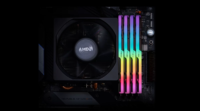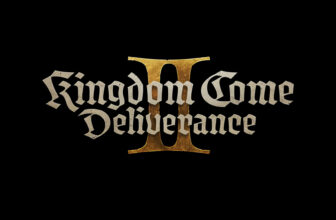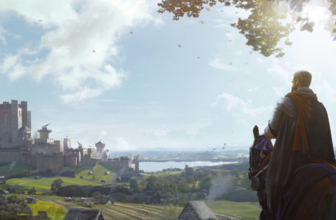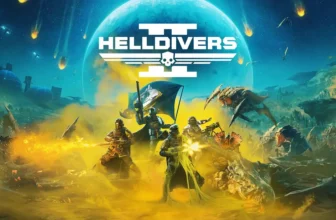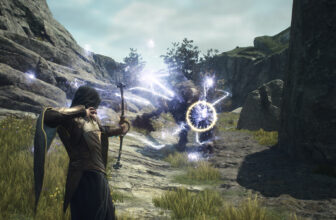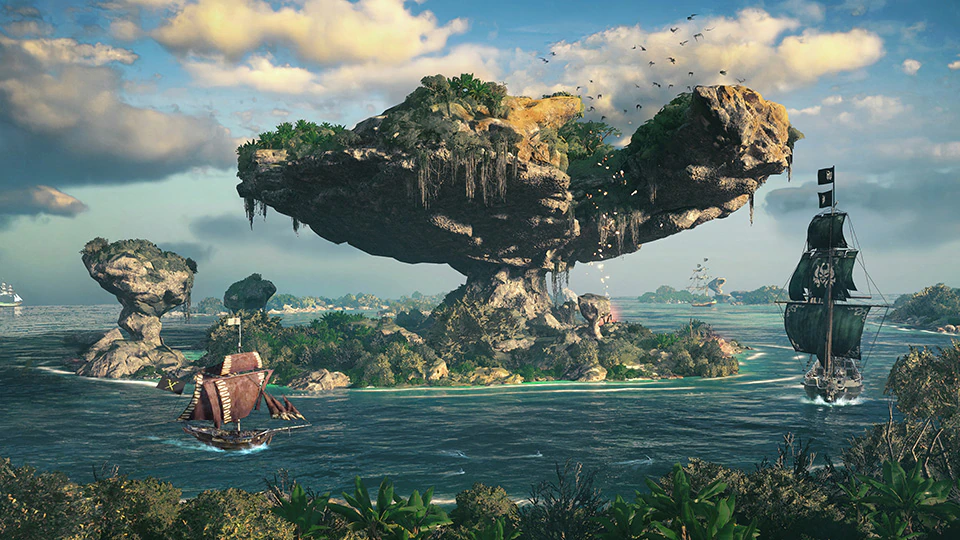
Skull and Bones is an upcoming naval combat and piracy-themed action role-playing game developed by Ubisoft Singapore and published by Ubisoft. Slated for release in the 16th February 2024, Skull and Bones has already generated substantial hype and anticipation among fans of open world and pirate games.
As a spiritual successor to the naval components of the Assassin’s Creed games, Skull and Bones promises to take the pirate elements to the next level with its dedicated focus on ship-to-ship combat and open world seafaring. Set in the Indian Ocean during the Golden Age of Piracy in the 17th century, players take on the role of a pirate captain who can amass wealth and infamy by raiding merchant ships and rival pirate crews.
Elevate Your Game: Unlocking the Best Graphics Card for You
With its tantalizing premise of living the fantasy pirate life on the high seas, Skull and Bones aims to capture that same sense of freedom and swashbuckling adventure as classics like Sid Meier’s Pirates and Sea of Thieves. But with Ubisoft’s trademark attention to historical accuracy and gameplay depth, Skull and Bones seems ready to deliver a best-in-class experience for aspiring pirates across PC and consoles. Or does it?
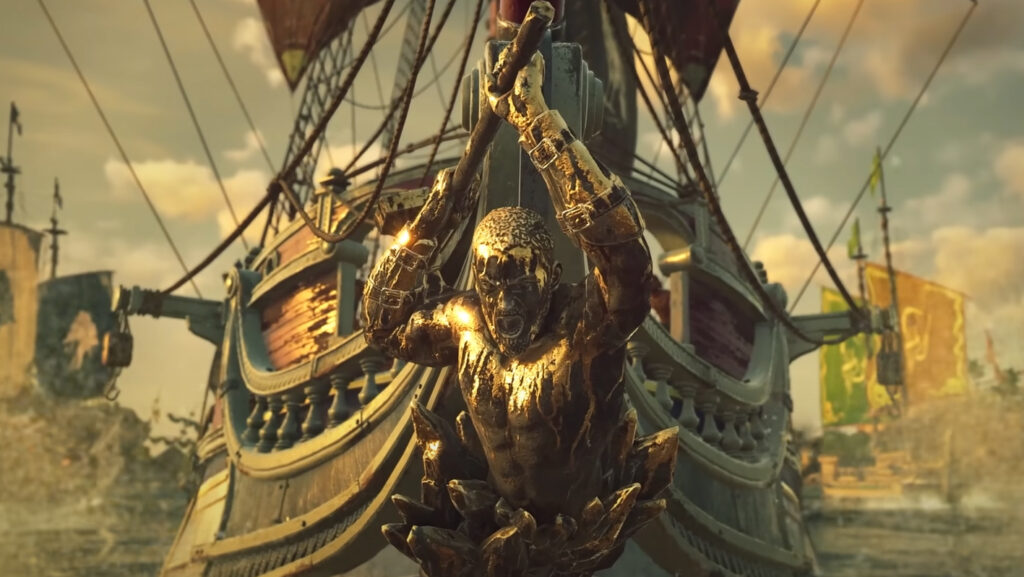
Gameplay Mechanics: Smooth Sailing or Rocky Waters?
First of all, lets get things straight: the main character of this game is not the pirate, but the ship! Of course, you explore the different harbors and other (very specific and limited) land areas with you pirate avatar, but don´t get fooled: the main focus is centered on the Vessel gameplay! The moment-to-moment gameplay while sailing and commanding your ship is the heart of the experience in Skull and Bones. Overall, the naval combat feels polished and satisfying, though it can become repetitive over long play sessions.
The physics of ship movement and cannon fire have an appropriate sense of weight and impact. Blowing holes in enemy ships with a well-aimed broadside feels great. There’s also a good variety of weapon types to mix up your strategy. You can aim to take out masts and sails to cripple opponents, or go for more damaging hull shots.
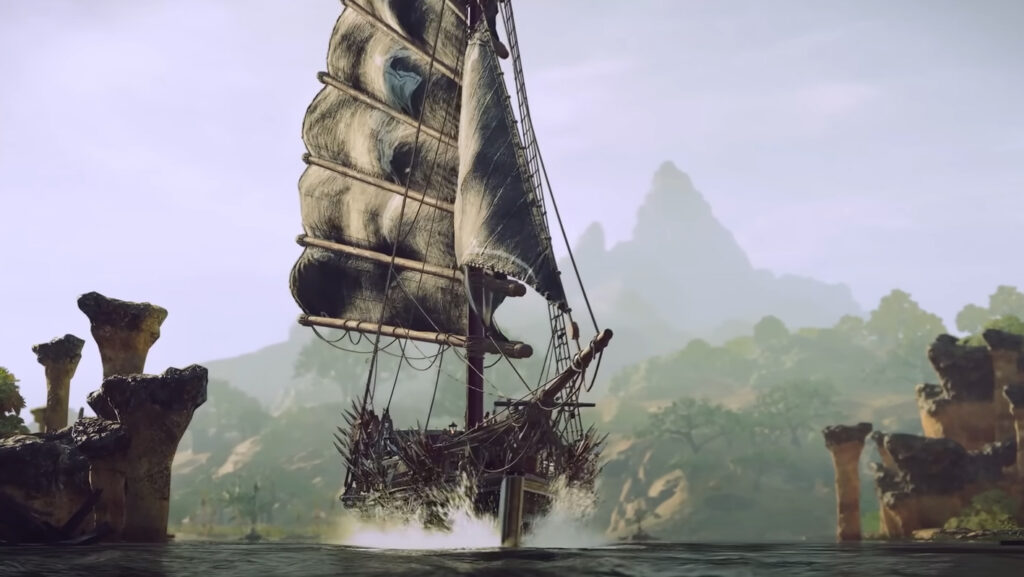
The basic sailing mechanics are intuitive, especially for fans of the naval combat in past Assassin’s Creed games. However, mastering advanced maneuvers like using wind direction, adjusting sail positions, and maneuvering in tight spaces takes practice. The learning curve is fair, with success depending more on player skill over stats.
The combat encounters themselves offer a decent amount of variety, from quick skirmishes with lone ships to intense battles against Pirate Hunting fleets. Storms rolling in add an extra dynamically changing factor to fights. The calmer waters of the open sea contrast with trickier engagements in coves and near islands.
Faster, Smoother, Better: Why RAM Matters for Serious Gamers
That said, the missions do settle into a predictable pattern of sail to destination, attack smugglers/rivals/hunters, loot and return to port. And if you think you could engage in hand-to-hand epic cutlass fights, or board your enemies ship without being pushed into a cutscene, you will have to find some other pirate game. Lacking are also other more diverse objectives like high stakes chases, infiltrations or non-combat activities that could have helped mix things up. For Franchise fans, the strategy and nuances have depth, but casual players may find the core loop repetitive after awhile.
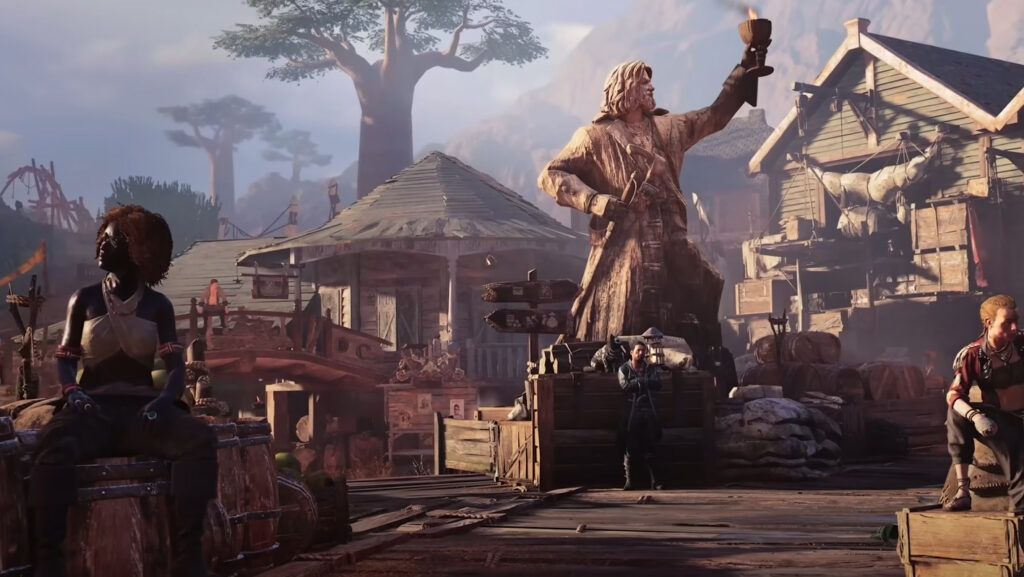
Additional gameplay types like fighting see monsters, exploring limited onshore locations, gathering resources (without leaving the ship!) or crafting provide a breathe of fresh air between naval battles. However, they feel underdeveloped compared to the ship combat. With more fleshing out, these features could have rounded out the overall experience. Also diving and exploring the sea, its a unknown feature in this game. Odd, considering that the main gameplay element in the game and where everything happens is, indeed, the Ocean!
Are Triple A Video Games Becoming Too Expensive for Gamers?
Open Sea Exploration Sets Sail
While land exploration is limited, by traversing the sea, there are always points of interest to engage with. These come in the form of merchant convoys to attack and loot, legendary ships to hunt down, pirate forts to conquer, and underwater wrecks to salvage for buried treasure. You’ll constantly be stimulated with new activities and challenges. Compared to the naval portions of past pirate games, Skull and Bones offers a deeper focus on open sea exploration and discovery.
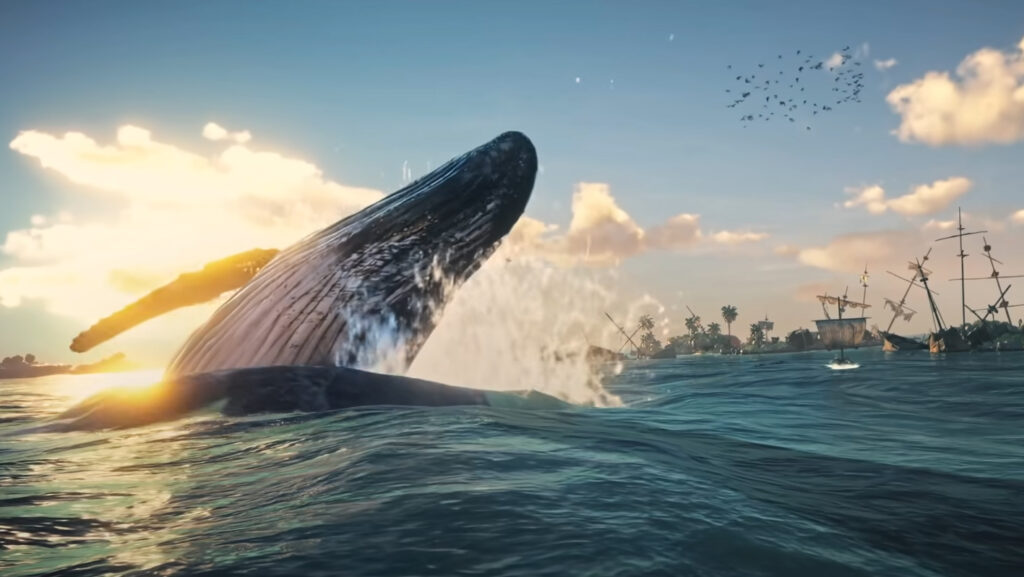
Whether you choose to take on story-based voyages or venture off the beaten path, the open sea map always holds potential for surprise encounters and loot to turn a profit. The promise of valuable rewards will have you eagerly setting sail to uncover every last island and secret. For fans of expansive sea worlds and pirate adventures, Skull and Bones’ map delivers plenty of exploration incentives.
Customization and Progression
Skull and Bones offers extensive customization options for your pirate ship that really make it feel like your own. You start with a basic ship but can upgrade nearly every aspect from the hull and sails to the cannons and figurehead. The variety of upgrades allow you to tailor your ship to your playstyle, whether you want to focus on firepower and armor or speed and agility.
Unleash Your Gameplay: Is This The Best Gaming Keyboard Ever?
The progression system is well-paced, providing a steady stream of rewarding upgrades. As you complete missions, explore new areas, and defeat enemies, you’ll earn resources and experience to purchase new upgrades. You really feel your ship getting stronger after each meaningful upgrade. The impact is immediately apparent when sailing or in combat.
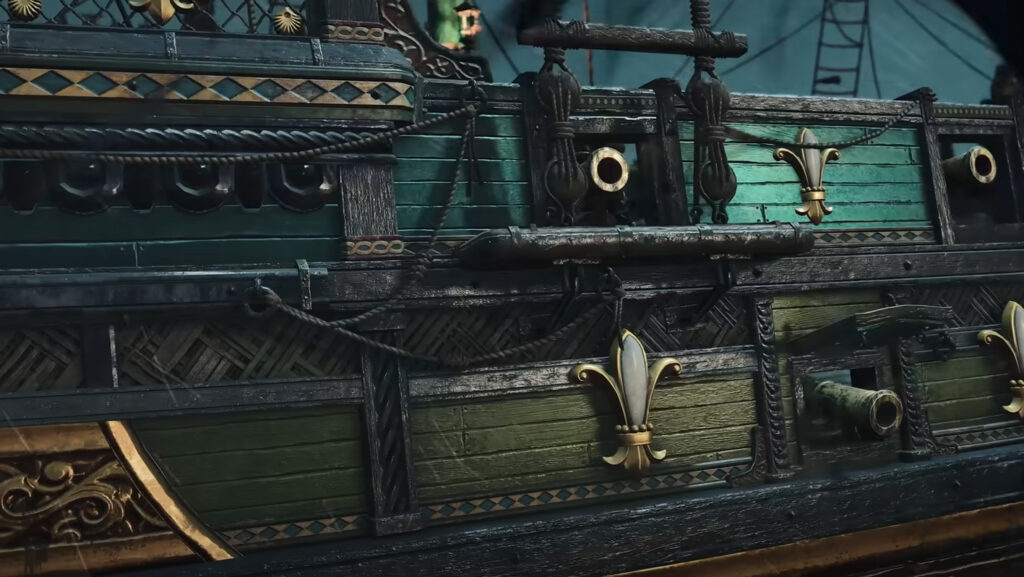
One standout is how the upgrades visually change your ship’s appearance. It’s great seeing the accumulative results of your choices – it makes your ship feel distinct. The extensive options let players create unique and specialized ships instead of cookie-cutter ones. Overall, the addictive loop of earning rewards and upgrading your ship is highly engaging and a core part of what makes Skull and Bones so enjoyable.
Visuals and Audio That Captivate the Essence of Piracy
Skull and Bones excels in immersing players in the golden era of piracy through its stellar graphics and audio design. The visual presentation is truly a technical achievement, with highly detailed ship and character models, dynamic weather and ocean effects, and lush tropical island environments.
Unlock Your Best Experience: Choosing the Perfect Keyboard for You!
The graphics engine brings the crude wooden ships and pirate hideouts to life in a gritty, realistic style. Effects like splintering wood during naval battles or swaying palms on island beaches enhance the illusion of being in the lawless Indian Ocean of the 1700s. While some textures can look muddy up close, the big picture is a feast for the eyes.
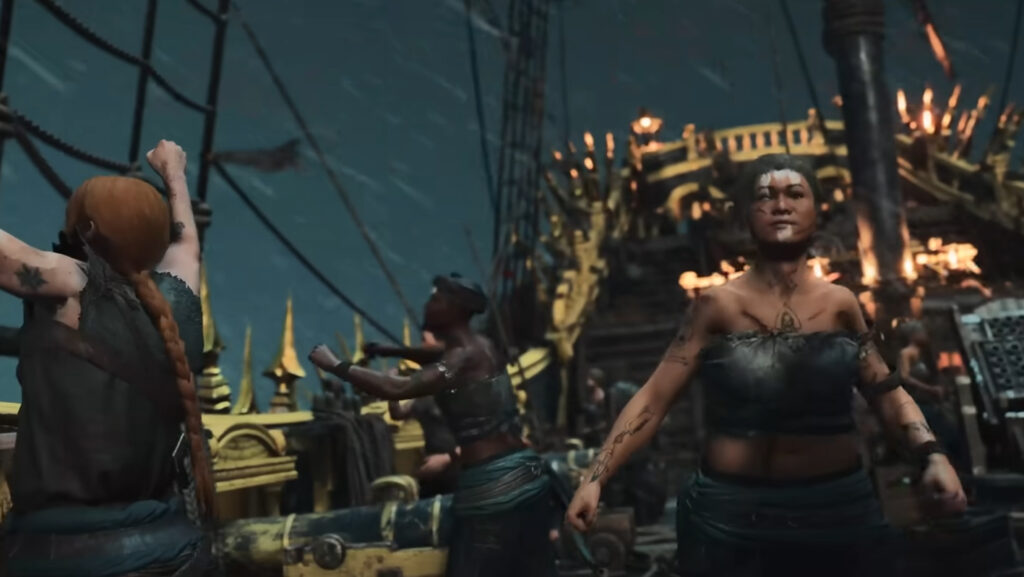
What’s most impressive is how the visuals and physics systems combine to make the ocean come alive. Rogue waves crashing into the ship, blinding storms that kick up towering swells, and screen-filling whirlpools capture the peril and unpredictability of sailing these waters. The ocean is as much a character in the game as your crew.
The sound perfectly complements the visual atmosphere. Cannons boom, sails flap violently in the wind, and your crew sings shanties during long voyages – all rooting you in the pirate fantasy. The rousing musical score fits the swashbuckling theme. Whether you’re locked in a tense battle or peacefully exploring a populated harbor, the audio pulls you right into this dangerous paradise.
Elevate Your Game: Unlocking the Best Graphics Card for You
Storyline and Characters
Skull and Bones features an engaging storyline that immerses players in the treacherous waters of the Indian Ocean during the Golden Age of Piracy. Though the overall plot may seem familiar to pirate genre fans, Ubisoft manages to deliver it in a fresh and cinematic fashion.
You start the game with a dramatic backstory cutscene that sets the tone for your adventure as an aspiring pirate captain. Throughout the main campaign, you’ll encounter interesting allies and menacing villains that drive the plot forward. The voice acting and animations breathe life into the various pirates, merchants, and military leaders you interact with.
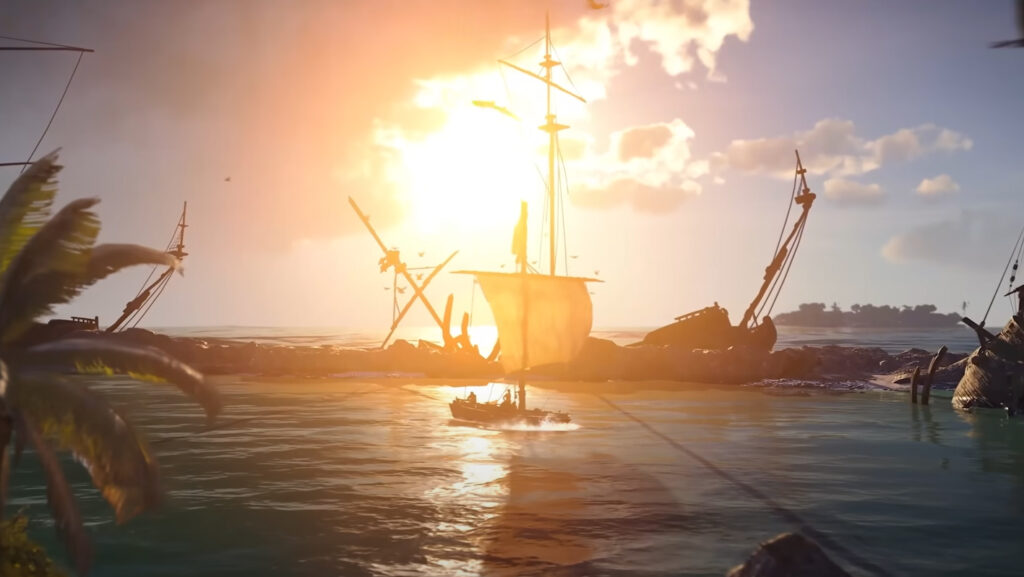
Without delving into major spoilers, the storyline successfully builds up the threat posed by your main rival pirate gangs. The story missions offer exciting set pieces like infiltrating heavily defended ports and escaping ambushes from enemy ships. While the overall narrative arc is not particularly groundbreaking, it provides an entertaining backdrop for the core gameplay.
When it comes to characters, as mentioned before, the game feels like you are playing as the ship more than anything else. But of course, your own custom pirate captain naturally deserves a very important role and added development. You can choose your backstory, personality traits, and fighting style during character creation. Your choices result in different dialogue options and shape your journey from unknown captain to legendary pirate lord.
The supporting cast features some memorable villains and potential love interests. However, most NPCs feel a bit one-dimensional, lacking the intrigue of characters in story-driven RPGs. But for a swashbuckling pirate adventure, the colorful cast of characters gets the job done to keep you invested.
Innovations
Skull and Bones brings some innovative gameplay elements and mechanics that help separate it from other pirate games. One standout innovation is the wind system that impacts naval navigation and combat. Players need to carefully monitor the direction and strength of the wind, positioning their ship accordingly to gain an advantage in battle or make the most efficient progress. The wind system along with the dynamic weather effects make sailing feel more immersive and strategic.
Another innovation is the notoriety system, where pirate captains must balance risky pillaging against maintaining a low profile. The more brazen and chaotic your piracy, the higher your notoriety rises, sending powerful bounty hunters and pirate hunters on your trail. This creates interesting risk/reward decisions and variability to the gameplay.
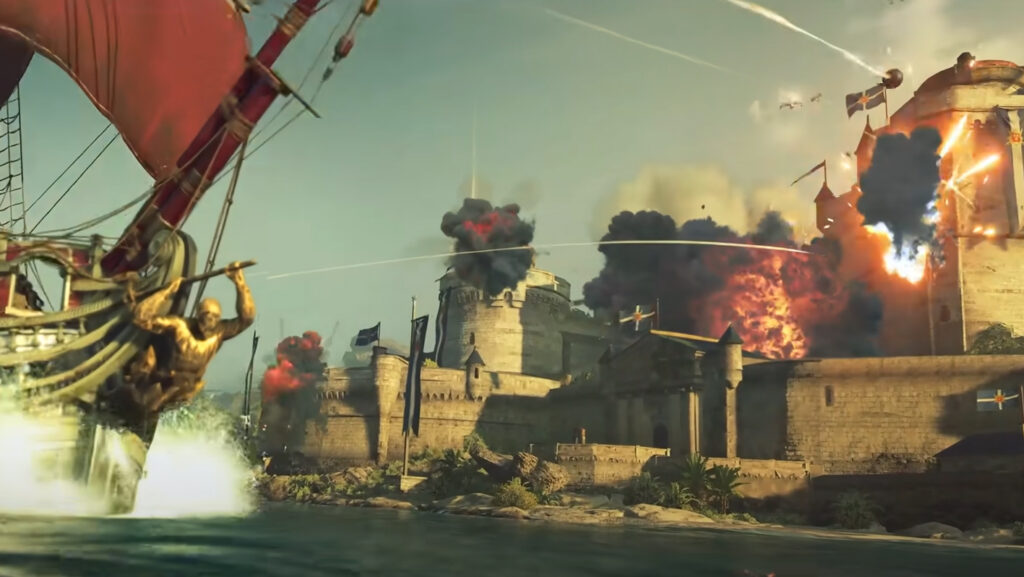
The ship command and crew management system is also unique, requiring you to issue broad commands to your specialized crew members like the navigator, cannoneer, and doctor. Managing the morale, skills, and injuries of your crew feels like an integral part of commanding your unruly pirate vessel.
Overall, Skull and Bones successfully weaves small innovative elements into the well-worn pirate genre formula.
Longevity and Replayability
Skull and Bones offers an expansive open world with hours upon hours of content to keep players engaged. The main story quest will take most players around 30-40 hours to complete, with dozens of additional side missions and activities dotted across the map. For those who wish to fully uncover all the secrets the world has to offer, the overall gameplay time could easily stretch beyond 60-80 hours. Even after completing the main story, the endgame provides new challenges through legendary ships, treasure hunts, and pvp events to test your skills.
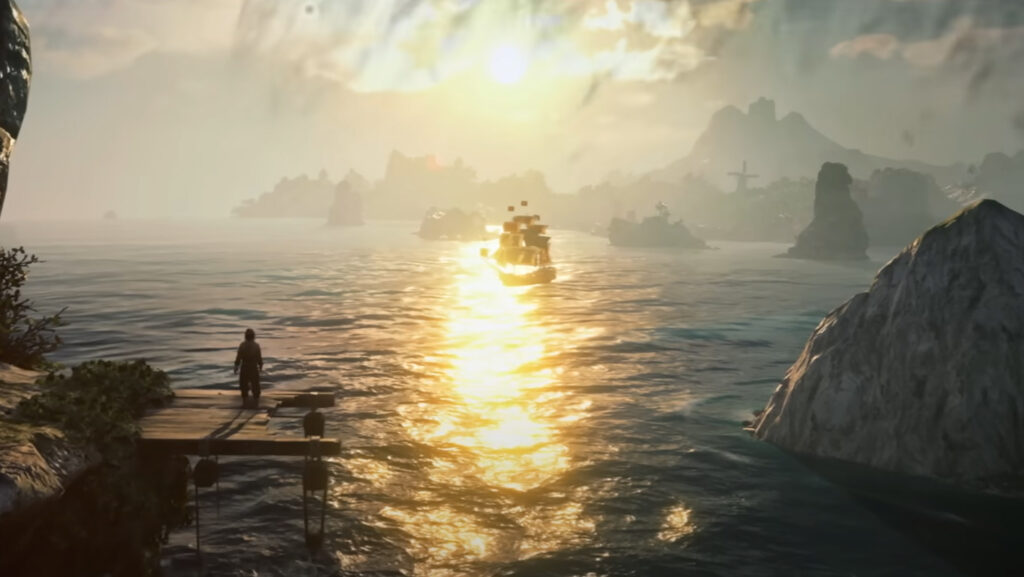
The game excels at giving you reasons to keep coming back. There are daily and weekly events that offer exclusive rewards. The in-game economy reacts to your actions, so no two playthroughs will be exactly the same. And of course the lure of finding better loot and upgrading your ship never loses its appeal. Customization is so extensive that you could play for dozens of hours and still not max out a single ship’s capabilities. Whether you want to focus on stealth, aggression, or a balanced approach, the game accommodates nearly any playstyle.
Skull and Bones clearly set out to create an open world packed with memorable moments and more than enough substance to justify its $60 price tag. For fans of open world pirate games, it delivers an adventure that will keep you playing for weeks on end.
Comparison to Similar Games
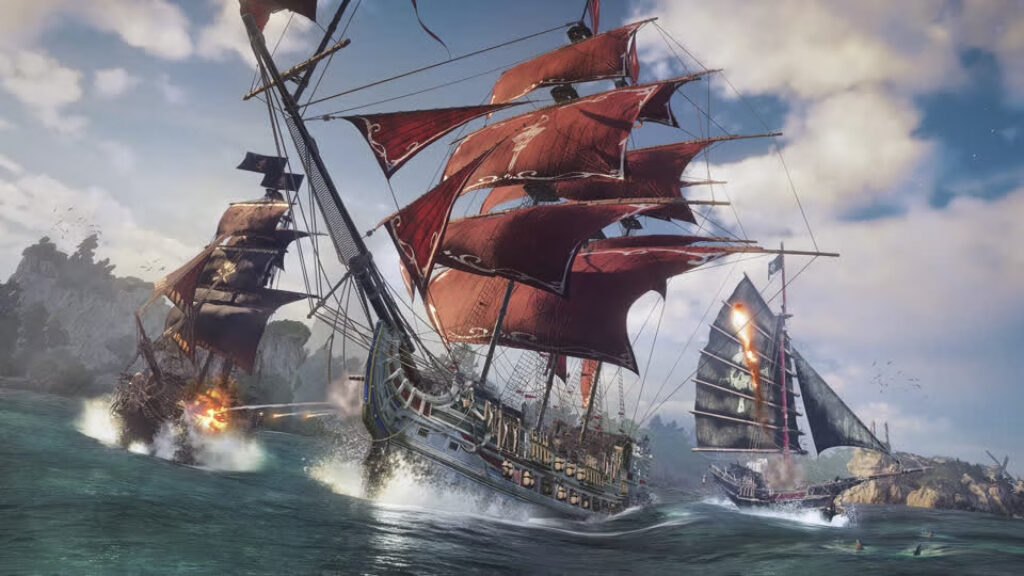
Skull and Bones enters the pirate genre along with other established titles like Assassin’s Creed Black Flag and Sea of Thieves. While it shares the naval combat and open seas with Black Flag, Skull and Bones takes it to another level with greater depth in ship customization and progression. The multiplayer and co-op focus also helps it stand apart. Sea of Thieves succeeds more in its whimsical charm and character interactions, but lacks the gritty realism of Skull and Bones’ cutthroat pirate domain. Where Skull and Bones shines is the diversity of its landscapes and range of activities, from hunting sea creatures to infiltrating forts. It doesn’t limit itself to only naval combat, but, incorporates, although limited, on-foot exploration, treasure hunts and a dynamic living world. The progression from a penniless pirate to commanding legendary warships also provides more long-term motivation and growth compared to similar pirate games. Ultimately, Skull and Bones carves its own unique identity with the expansive open world, visceral combat and engaging progression, while providing a more grounded and realistic portrayal of the Golden Age of Piracy.
Conclusion and Verdict
Overall, and looking at the open beta exclusively, Skull and Bones provides a thrilling and immersive pirate adventure for fans of open world naval combat games. With its vast explorable seas, exciting ship battles, and deep customization system, Skull and Bones succeeds at bringing the swashbuckling Golden Age of Piracy to life. Players can easily lose dozens of hours living out the ultimate pirate fantasy.
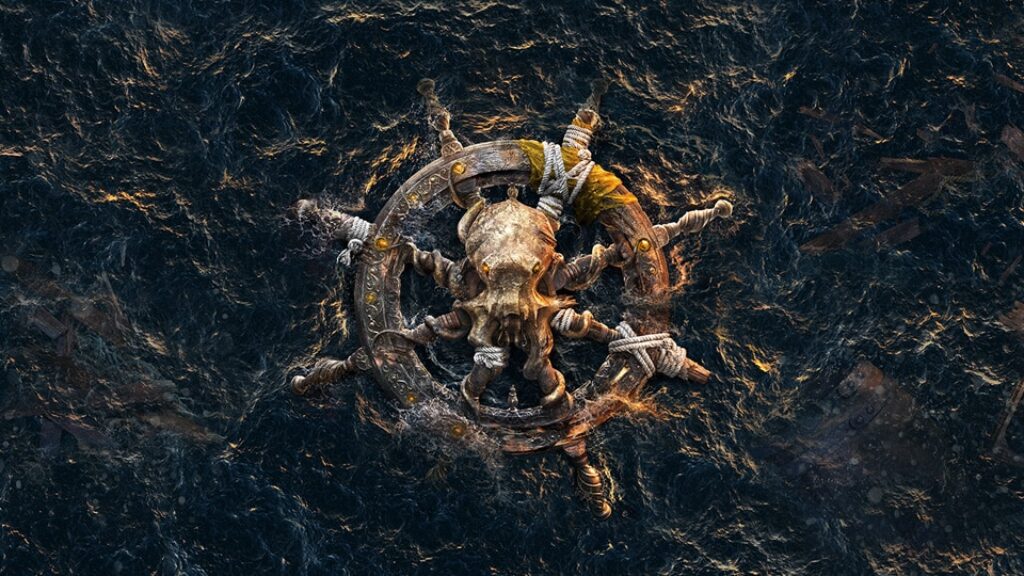
That said, the experience is held back by repetitive missions, performance issues, and a lack of compelling storytelling. The world starts to feel stale after the initial wonder wears off, as many of the islands and enemies recycle the same assets. There are also noticeable frame rate drops in crowded areas that hamper the fluidity of gameplay. Additionally, the lack of character development and minimal voice acting make the story feel flat compared to similar open world games.


